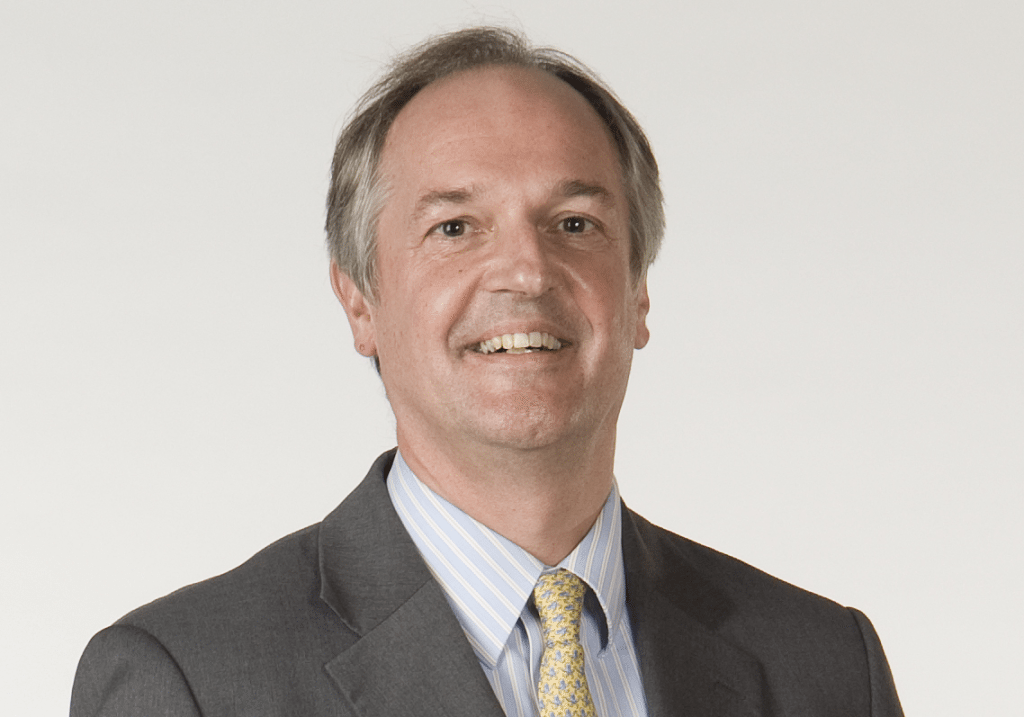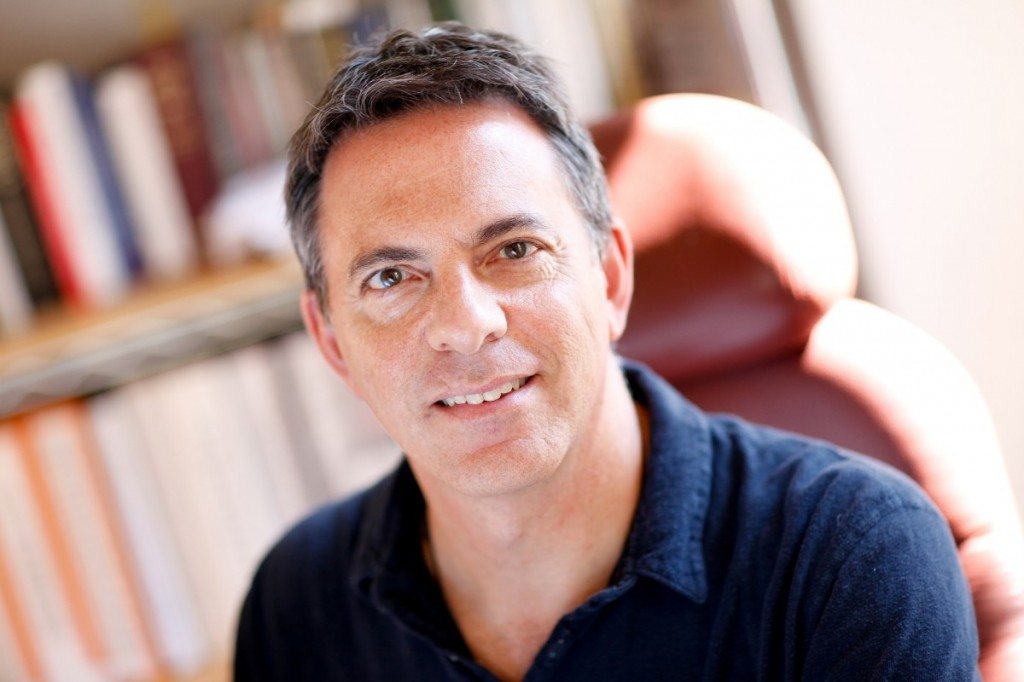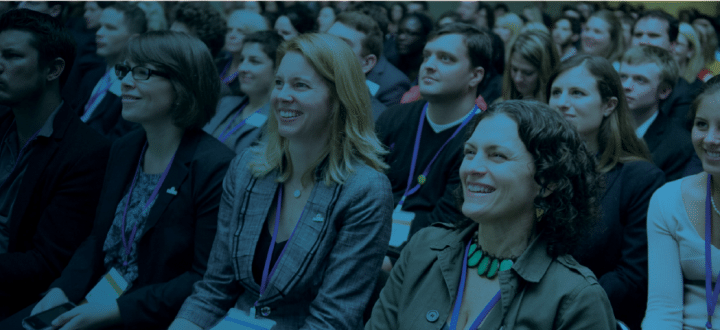Twenty-two years ago, a small group of MBAs and entrepreneurs had a great idea. In the midst of a world where business was often viewed as an evil force, they dared to think differently. In the fall of 1993, MBA students from across the United States came together, united by their vision of a future where business could mean more than making money. Georgetown University hosted the first Net Impact Conference, attracting speakers that included Ben Cohen of Ben & Jerry’s (who showed up in an ice-cream-stained t-shirt) and Anita Roddick of the Body Shop. The conference opened the eyes of the 140 students in attendance to the power of business to improve the world. It wasn’t the first or the last time that the Net Impact community would demonstrate its commitment to breaking boundaries.
This fall, the Net Impact community will once again return to this important theme. In many ways, the boundaries of the early 1990s were more entrenched and complex than those of today—the very concept of business as a force for good was suspect. While that debate may live on in some circles, today there is far more mainstream acceptance, from the C-Suite down, of not just the ability but the mandate for businesses to drive positive change in the world.
And yet, while norms have shifted, the boundaries of the 21st century are less obvious but no less limiting. In the realm of Corporate Social Responsibility (CSR), most of the low-hanging fruit has been picked. It’s not enough to give away a lot of money, or tweak a supply chain, or incubate a small social enterprise. The barriers we are grappling with are global in scope and structurally multi-faceted. What’s more, the stakes are higher than ever; persistent poverty, global health epidemics, climate change, and joblessness threaten the lives and livelihoods of billions of people around the world.
In early November, MBA students and business leaders alike will have the opportunity to come together at the 2014 Net Impact Conference in Minneapolis to take on the messy, uncomfortable, and controversial—yet inspiring and imperative—challenge of breaking boundaries once again. Impact leaders across sectors are embracing three strategies for disruptive change: forging unexpected alliances, embracing multiple definitions of the truth, and leaving limits behind to shape creative solutions that can transform the world.
1) Work with the “Enemy”
Breaking boundaries often requires being willing to collaborate with the most unlikely allies, even competitors. Unilever’s CEO Paul Polman has broken many boundaries with his leadership of the world’s third-largest consumer packaged goods company, from his emphasis away from short-term returns to long-term value to his commitment to grappling with the world’s biggest problems. To have a discernible impact on big issues, Polman knows that he must work with many stakeholders, including the competition. Says Polman, “What we’re now dealing with are enormous challenges of poverty or climate change; sustainable growth in its broadest sense; equality… . That requires a broader level of partnerships.” As one example, Unilever is working with marketplace rival Nestle on a coalition to convert the global market to natural refrigerants for display cases. “It needs a tipping point; no individual company can do that alone,” Polman adds.

Paul Polman, Unilever CEO, understands a single company can’t solve big world issues alone and collaborates with market competitors to implement change.
Dr. Temple Grandin, who became famous for her achievements in mathematics, has also embraced the opportunity to work with unexpected bedfellows. Because of her high-functioning autism, Temple thinks differently than most of us. Grandin has leveraged her keen ability to think visually, due to her hypersensitivity to noise and other sensory stimuli, into a unique and monumental career collaborating with fast-food companies like McDonald’s to improve the conditions of slaughterhouses. An animal lover working on slaughterhouses? As you might expect, her work with McDonald’s and others has been decried by animal activists, yet Grandin has been steady in her conviction to focus on maximizing animal comfort over lengthening animal lives.
Temple Grandin, an doctor of Animal Science and animal lover, breaks boundaries by collaborating with McDonald’s and other food companies to improve slaughterhouse conditions.
2) Put the Truth on Trial
To overcome the limitations of the status quo, leaders cannot hide behind publicity and good marketing. They must embrace the opportunity to dialogue through differences in a public forum. Last year, Net Impact welcomed a lively debate between Exxon Vice President Ken Cohen and Sierra Club CEO Michael Brune. While charged at times, the forum helped further the dialogue on the future of energy. As conference attendee and sustainability professional Laura Clise noted, “Leadership is the willingness to participate in difficult conversations. Dialogue takes courage on both sides.”
According to a recent Harris poll, Monsanto has one of the worst reputations in the United States, yet it is also a company that is deeply engaged with the challenge of how to feed the 2 billion people that are projected to join the population of the planet by 2020. Monsanto executives know their company invites controversy, and they embrace the opportunity to dialogue with people who oppose their perspectives. This year, the Net Impact Conference will provide a forum for Monsanto executive Natalie DiNicola to debate the future of food with NGO leader M. Jahi Chappell from the Institute for Agriculture and Trade Policy, sharing their contrasting viewpoints on how to feed the world sustainably.
3) Measure What Matters
Overhead spending has been one of the most commonly used metrics to define “good” nonprofits by groups like the Better Business Bureau, but Dan Pallotta has begun a revolutionary movement to change how organizations measure the difference they make in the world. A decade ago, his company, Pallotta TeamWorks, was criticized for overspending on marketing, administration, and logistics. His critics argued that such overhead costs cut too deeply into the potential impact of their charitable contributions. Too many nonprofits, Pallotta says, are rewarded for how little they spend instead of for their results. He suggests that nonprofits should be evaluated on the basis of their ambitious goals and measurable impact, not their overhead spending.

Dan Pallotta and his 2013 Ted Talk is rethinking nonprofits’ traditional approach to minimizing overhead spending.
In his now-famous 2013 Ted Talk, provocatively titled, “The Way We Think About Charity is Dead Wrong,” Pallotta makes the point that the outcomes of the charity—in his case, fundraising hundreds of millions of dollar for AIDS and other health causes—outweigh the need to limit overhead spending in the nonprofit sector. As a keynote speaker at Net Impact 2014, Dan will ask the social impact community to question long-held assumptions about the best ways to measure impact and effectiveness.
Read this article in the print version
Breaking Boundaries to Repair the World
This fall, the Net Impact community will once again come together to break boundaries, just as it did more than two decades ago, in an effort to break the boundaries that prevent change-makers from creating a just and sustainable world. Mandy Yard, a student attendee at the last two Net Impact conferences, summarized her transformational experience:
“I consider it a mind-blowing, life-changing experience. Not only are you surrounded by friendly, passionate, and knowledgeable people, but you are also exposed to inspirational and practical tools to increase social impact in any field.”
Join the Net Impact community on November 6-8, 2014 on a boundary-breaking journey to repair the world.
Liz Maw
Liz Maw is the CEO of Net Impact, a global nonprofit that empowers a new generation to work for a sustainable future. Since 2004 when Liz joined, Net Impact has tripled its chapter network to nearly 300, formed partnerships with over 50 global corporations, and developed multiple new programs that engage students and professionals to drive transformational change in the workplace and the world. Liz is a frequent speaker and writer, with blogs appearing in the Stanford Social Innovation Review, Guardian Sustainable Business, GreenBiz, and World Economic Forum. Liz was named one of the 100 most influential people in business ethics by Ethisphere. She holds a BA with honors from Yale University and an MBA from Columbia Business School and the Haas School of Business at UC Berkeley.




Pingback: Net Impact Celebrates 22 Years of Breaking Boundaries
Pingback: Part I: Tackling the Future of Food, Water, and Energy at Net Impact - New Global Citizen
Pingback: Must read: Inside The New Global Citizen Fall 2014 Issue